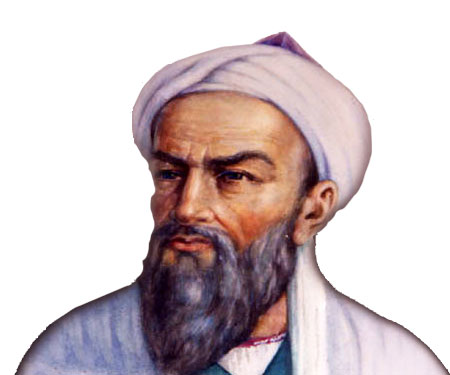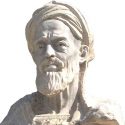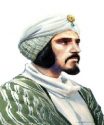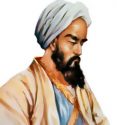 Al-Biruni (Al-Beruni) is known for his works on multiple fields. Apart from mathematics, he knew about planets and stars, languages, geography, cultures, and history. Besides, he was a keen traveler, therefore, he visited India and worked on its languages, religion, and people. His time is known as the Golden Age of Islam. A famous Muslim scientist Avicenna (Ibn Sina) also lived in his time. Al-Biruni died at Gazni, in Afghanistan.
Al-Biruni (Al-Beruni) is known for his works on multiple fields. Apart from mathematics, he knew about planets and stars, languages, geography, cultures, and history. Besides, he was a keen traveler, therefore, he visited India and worked on its languages, religion, and people. His time is known as the Golden Age of Islam. A famous Muslim scientist Avicenna (Ibn Sina) also lived in his time. Al-Biruni died at Gazni, in Afghanistan.
Biography – Life Span
Al-Biruni was born on 5th September 973 CE at Khwarazm in Uzbekistan, and his full name was “Abu Rayhan Muhammad Ibn Ahmed Al-Biruni“. The information on Al-Biruni’s early life is rare. Since he spent the first twenty-five years of his life in studies like logic, Islamic laws, philosophy, mathematics, and astronomy – the study of stars and planets. Because of his intelligence, rulers of his time would keep him in their company.
By the age of 22 in the year 995, he left his homeland and went to Bukhara. This city was then the center of knowledge in the world. He stayed there for around three years to get an education. He came in contact with Ibn Sina (Avicenna) and exchanged views with him on various subjects. Later, in 998 AD, he moved to Tabaristan in Iran where he wrote his first book, “The Remaining Traces of Past Centuries”.
At the age of forty-four in 1017 AD, Al-Biruni joined the court of Mahmud Ghaznavi, where he was appointed as an advisor on the study of planetary bodies. After serving for thirteen years, Mahmud Ghaznavi sent him to India in 1030 AD. Al-Biruni became aware of every walk of Indian life. He wrote a book on Indian history and culture known as “The History of India”.
As he traveled to Central and South Asia, he studied people’s customs and cultures. After his long research life, he died at the age of 77 years in the year 1050 in Ghazni, Afghanistan.
Contributions and Discoveries
Al-Biruni’s contribution have impacted most of the fields of knowledge. A good-sized book can be written just to describe his contributions. Some of his contributions are:
- Astronomy:
Al-Biruni discovered the mathematical methods to find the distance between the Sun, Earth, and Moon with the help of old astrolabes. This way he laid the foundation of knowing planetary distances. Furthermore, he very precisely measured the radius of the Earth to be 6,339.9 km which is 99.5% accurate. - Geography:
Al-Biruni has written many books on geography and described locations of minerals, landmarks, people and culture, ancient nations, and the Earth’s shape. He founded the way to measure the distances of the Earth’s surface. Moreover, he precisely measured the coordinates and developed an accurate Earth Map of that time. - Mathematics:
Al-Biruni has described new methods and refined the existing work on trigonometry in his treatise on trigonometry. Also, he worked on the solutions of quadratic and cubic equations. - History and Ethnography:
Al-Biruni did extensive work in studying and writing the history of various nations. His most of work on history is based on India. Also, he laid the foundation for the study of multiple religions like Buddhism, Christianity, Hinduism, and Islam. Therefore, he learned languages like Hebrew, Greek, and Sanskrit. - Physics:
Al-Biruni’s work on physics is very remarkable. He wrote abundantly on the properties of materials and mechanics. He described the concept of inertia and gravitational force. Also, he invented a device that helped him determine the specific gravity of many elements and compounds. - Medicine:
Al-Biruni worked on the study of medicine and human health. He wrote a book on medicine in which he made a list of drugs and their properties with similar names.
Facts
- He earned fame due to his research on India and wrote notes on its culture and people. Besides, he learned Sanskrit to understand their scriptures. Due to his contribution, he was given the title of ‘the Founder of Indology’.
- Al-Biruni became a well-known mathematician and an astronomy expert (the study of planets and stars) in the Golden Age of Islam when his time’s other known figures, e.g. Avicenna (Ibn-Sina) lived around.
- Due to his intelligence, Al-Biruni not only remained close to the rulers, but he even helped settle disputes between tribes and also worked for them on scientific and religious matters.





